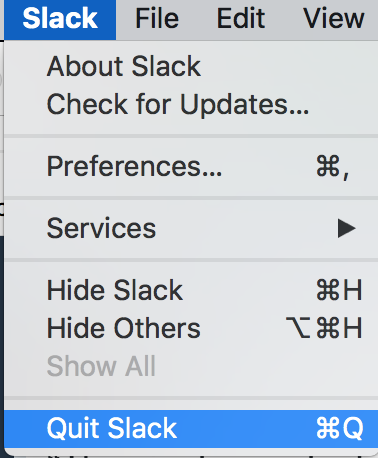
Constantly interrupted at work? Slack is not your problem
Really this post could have dozens of titles - Jira is not your problem, Trello is not your problem or even meetings are not your problem. For now - let's focus on Slack.
Say what? Who thinks Slack is a problem?
Since Basecamp (née 37 Signals) launched Campfire back in 2006 and probably before that even - teams, especially software teams, have been using group chat to collaborate. Slack is the latest and most successful itiration on this idea.
But there's a growing concern that maybe we've jumped to quickly into the deep end of group chat. Even Jason Fried has weighed in that perhaps group chat is problematic (Is group chat making you sweat?).
The concern - in a nutshell - is that Slack is a distraction, it kills productivity, it encourages a toxic work life relationship and even kills your culture.
And I would agree with many of these points - I mean I do agree with some of them. If only the solution weren't so simple:

So what is the problem?
The problem at it's core is organizations and management teams that don't set their teams up for success. There's enough missives out there about why thought workers need quiet, uniterrupted time to work. I'd argue all workers need this. The uninterrupted time? That's when the work happens.
Slack is not forcing your team to be always on, always connected with a 5 second response time. Slack is not creating a toxic environment that's stressing people out and killing productivity. You are doing this. Let that sink in for a second.
Slack will amplify your culture. It will echo your values.
If you value uninterrupted quiet time for your team - encourage them to sign off of Slack for large blocks of time. Don't penalize them for "missing" messages. Some conversations need to be instant and syncronous - i.e. the service is down. Many conversations should be asyncronous and encourage longer more thoughtful responses - i.e. which of these features should we work on next. Use the right tools when appropriate.
At Litmus, we use Slack for the rapid fire sync communications we have throughout the day. And we use Basecamp for longer form asyncronous communications that require more thought and that we want to persist and be documented. This is what works for us.
What if you got rid of Slack and the problems persisted?
Don't scapegoat tools for what are essentially people problems. If your creative team is constantly interrupted via Slack, do we really think removing Slack will stop people from emailing, calling, popping by people's desks? If the CEO expectes a 5s response time via Slack, is the expectation different of an email or a phone call?
By all means use the tools that best suit your teams. But if something isn't working for your team don't rush to blame the tools. They're likely the symptom not the cause.
The future of group chat
Whether it's Slack or Microsoft Teams or Campfire, Hip Chat and on and on, group chat as a workplace tool is not going away. Organizations need to think carefully. What values are being echoed? What opportunities and risks do these tools present? And maybe most importantly, how can I use these tools in the best way to make my team more successful.
Hello! I'm Brendan Caffrey. A software engineer and leader currently working as Engineering Director @ Litmus where I lead teams making awesome tools for email professionals.